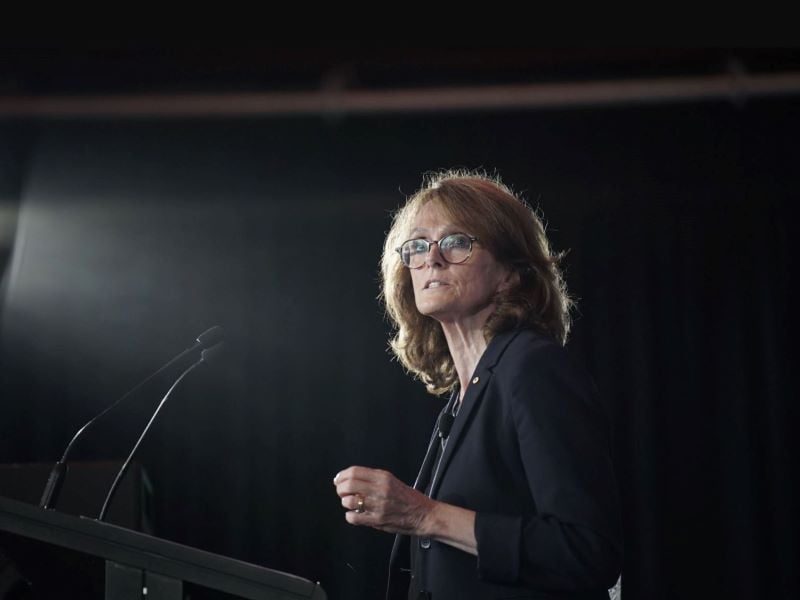Quantum technologies will be as disruptive as the generative artificial intelligence wave that swept the world in the last year, Australia’s chief scientist said on Thursday, while revealing the three sectors she sees as critical for Australia to take full advantage.
In an address to the Quantum World Congress in Washington DC overnight, Dr Cathy Foley said the Australian quantum sector had built steadily over two decades and had been “on steroids” over the past three, as governments and investors took notice.
Capitalising on the foundations and new interest will take continued research while building domestic demand and focusing on three key industries, Dr Foley told the event, attended by global practitioners, policymakers and investors.

In May, the Albanese government launched Australia’s first-ever National Quantum Strategy, which includes the lofty goal of producing a first-in-the-world error corrected quantum computer within ten years.
The strategy recognises a need to continue funding R&D, including discovery, while providing access to infrastructure, grow a quantum workforce, and tap into the global ecosystem, all in trusted and ethical way.
With the roadmap in place, some government funding, and the promising growth of local startups, Dr Foley said quantum technologies is clearly achievable.
“The reality is that those of you investing in quantum are not investing in a pipedream,” Dr Foley told the global event.
“You’re investing in an understanding that the promise of quantum is achievable. You know that if the physics is correct, then it becomes an engineering challenge. Of course, there’s some distance to go to get a full error-corrected quantum computer, but what’s ahead of us is a series of technical, engineering challenges – very complex technical challenges, but ones that can be solved.”
Like the rise of generative artificial intelligence that has seem massive uptake and interest among the general public, quantum technologies will soon be a “barbeque stopper”, Australia’s chief scientist said.
“ChatGPT punctured our equilibrium and it will be the same with quantum… The march of quantum, like the march of AI, has begun.”
Dr Foley said Australia’s quantum ambition is closely tied to three sectors: “Renewable technologies including minerals extraction; health and medical technologies; and the supply chains for components such as those in semiconductor manufacturing.”
Dr Foley, who pioneered devices that use superconductors to detect magnetic fields and locate valuable deposits of minerals, said she expects quantum technologies will allow Australia to “lead the world in non-GPS navigation in underground and deep-walled mines”.
“But our ambition is not simply to mine critical minerals – to dig and ship. Our ambition is to process them up the value chain so we can occupy a new niche in the supply chains for high-tech manufacturing.”
Quantum, along with semiconductors and photonics are part of an Australian “trifecta that has the potential to provide the acceleration that we need”, Dr Foley said.
“Australia has a largely hidden but highly integrated photonics industry, worth some billions to our economy.”
Capitalising on Australia’s new “strategic approach” to quantum will mean building domestic demand, Dr Foley said.
“The other side of the equation for me is to build demand in the domestic economy – to make sure industries that will be impacted by quantum and can benefit from quantum, start leaning into this future.”
To do this, Dr Foley has led a program to connect sectors with quantum experts to demonstrate the potential.
Last month, Australia’s sport sector, including executives, managers and athletes, was introduced to quantum experts. In a day of “quantum speed dating” the sports sector was shown what quantum offers – everything from injuries to precision timekeeping.
Similar events are being planned for health, transport, space and communications.
Do you know more? Contact James Riley via Email.

